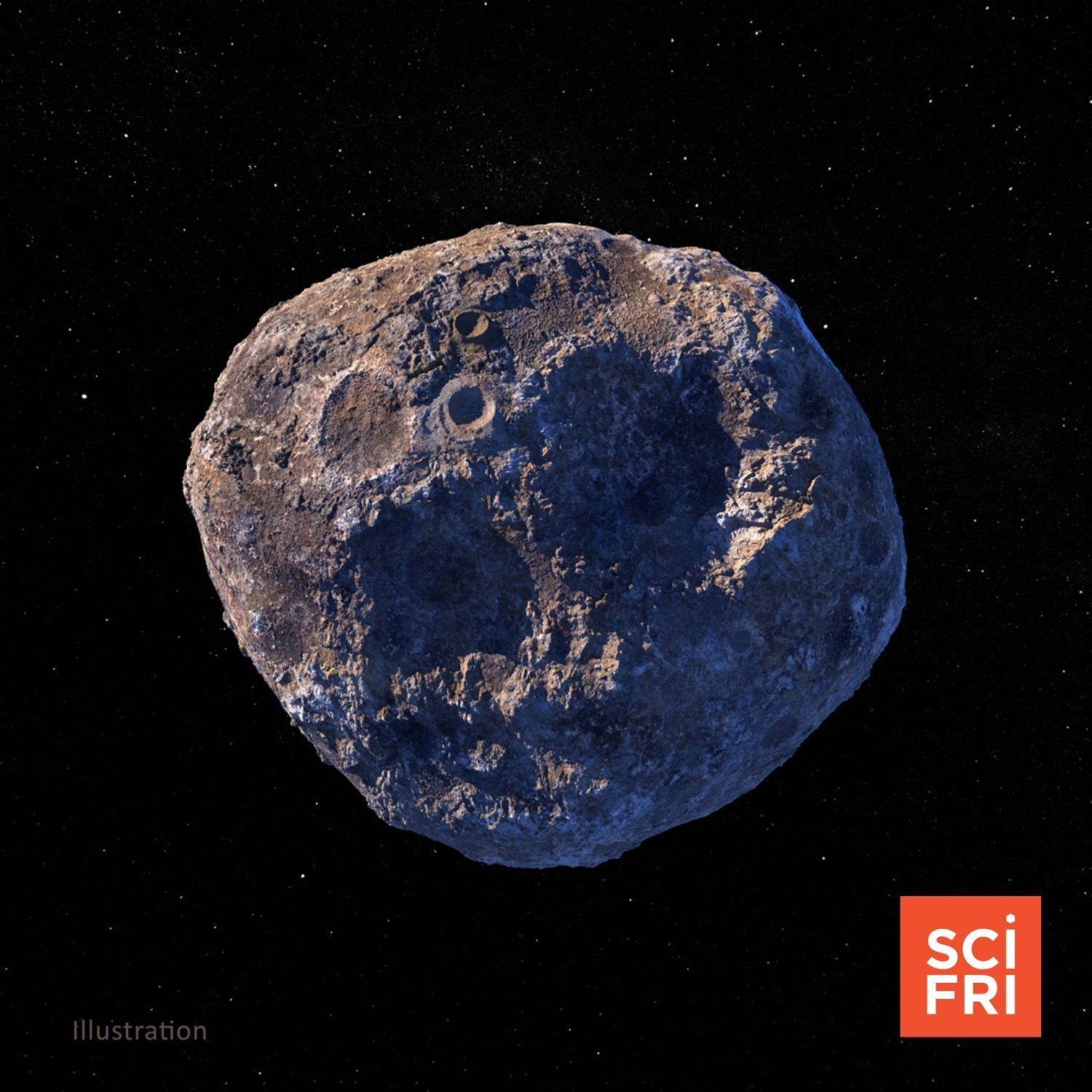Last week, NASA’s Psyche spacecraft launched successfully from the Kennedy Space Center. It’s now on a six-year trip to an asteroid, also called Psyche, located in the solar system’s main asteroid belt between Mars and Jupiter. Unlike previously studied asteroids, it’s not composed mostly of rock or ice. The Psyche spacecraft's target is largely made of metal, thought to be around 60% iron and nickel. The mission won’t actually land on the asteroid—all of its observations will happen from orbit, and will involve imaging, spectroscopy, and magnetometer studies.
Scientists aren’t sure if the asteroid is a proto-planetary core, or something else entirely. They’re hoping that studying the metal-rich asteroid might help teach them about how planets form. Some researchers are also interested in learning what 16 Psyche might be able to teach them about the possibility of future space mining operations—though this particular space object is too far away and too impractical to attempt any kind of sample return, let alone its retrieval. (Plus, suddenly selling the amount of metal an entire astroid holds would completely disrupt the global market, making it almost worthless.)
Dr. Lindy Elkins-Tanton, the principal investigator for the Psyche mission and vice president for Arizona State University’s Interplanetary Initiative, joins guest host Swapna Krishna to talk about the mission and its goals.
To stay updated on all things science, sign up for Science Friday's newsletters. Transcripts for each segment will be available the week after the show airs on sciencefriday.com.
More Episodes
772: How Climate Change Is Changing Sports
 2024-05-16
2024-05-16
771: Why Is Tinnitus So Hard To Understand And Treat?
 2024-05-15
2024-05-15
770: Finding Purpose In A ‘Wild Life’
 2024-05-14
2024-05-14
769: Archeopteryx Specimen Unveiled | Trees And Shrubs Burying Great Plains' Prairies
 2024-05-13
2024-05-13
768: JWST Detects An Atmosphere Around A Rocky Exoplanet | Boeing Plans To Fly Humans To The ISS Next Week
 2024-05-10
2024-05-10
767: Challenging The Gender Gap In Sports Science
 2024-05-09
2024-05-09
766: What Martian Geology Can Teach Us About Earth
 2024-05-08
2024-05-08
765: How Louisiana Is Coping With Flooding In Cemeteries
 2024-05-07
2024-05-07
764: Inside Iowa State’s Herbarium | Science-Inspired Art From ‘Universe of Art’ Listeners
 2024-05-06
2024-05-06
763: Science From Iowa’s Prairies | Planning To Go See Cicadas? Here’s What To Know
 2024-05-03
2024-05-03
762: Maybe Bonobos Aren't Gentler Than Chimps | Art Meets Ecology In A Mile-Long Poem
 2024-05-02
2024-05-02
761: When Products Collect Data From Your Brain, Where Does It Go?
 2024-05-01
2024-05-01
760: Visualizing A Black Hole’s Flares In 3D
 2024-04-30
2024-04-30
759: The 4,000-Year History of Humans and Silk
 2024-04-29
2024-04-29
758: Flint’s Water Crisis, 10 Years Later | Underwater Cables Could Help Detect Tsunamis
 2024-04-26
2024-04-26
757: Fighting Banana Blight | Do Birds Sing In Their Dreams?
 2024-04-25
2024-04-25
756: Why Is Solving The Plastic Problem So Hard?
 2024-04-24
2024-04-24
755: What Worsening Floods Mean For Superfund Sites
 2024-04-23
2024-04-23
754: The Global Mental Health Toll Of Climate Change | Capturing DNA From 800 Lakes In One Day
 2024-04-22
2024-04-22
753: Clean Energy Transition Progress | Avian Flu In Cattle And Humans Has Scientists Concerned
 2024-04-19
2024-04-19
Create your
podcast in
minutes
- Full-featured podcast site
- Unlimited storage and bandwidth
- Comprehensive podcast stats
- Distribute to Apple Podcasts, Spotify, and more
- Make money with your podcast
It is Free
You may also like

Exploring the National Parks


The Covert Narcissism Podcast


Greece Travel Secrets Podcast


Stuff You Should Know


Timcast IRL

- Privacy Policy
- Cookie Policy
- Terms of Use
- Consent Preferences
- Copyright © 2015-2024 Podbean.com




 iOS
iOS Android
Android